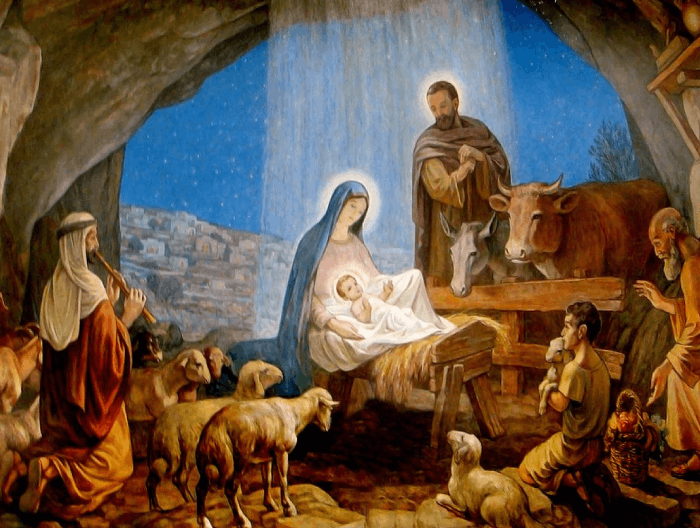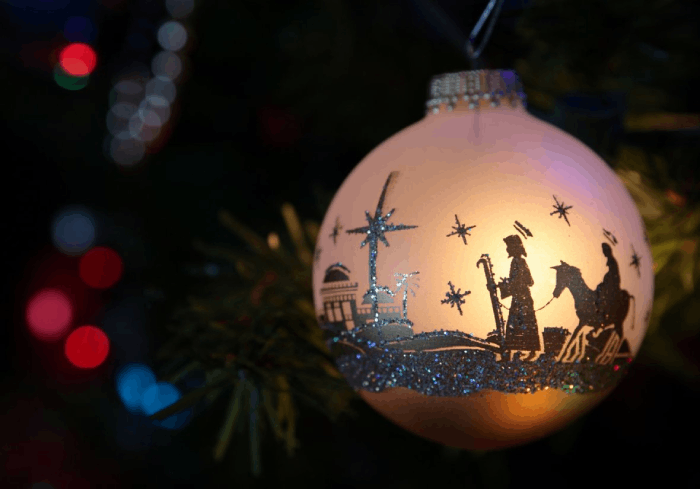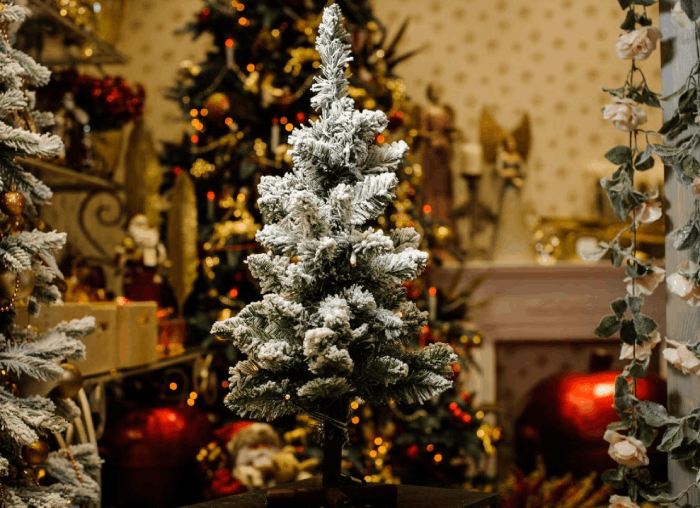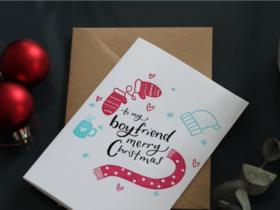Christmas is a highly significant day in many countries and has a major influence on their culture. Have you ever thought about the real significance of Christmas? In this article, we will take a journey to discover the true essence of Christmas meaning and the beloved holiday traditions in the UK.
Contents
The History of Christmas: From Ancient Roots to Modern Celebrations
The history of Christmas is a captivating tale that spans centuries, weaving together ancient traditions, religious beliefs, and cultural customs into the festive tapestry we recognise today. Now, let’s explore the original of Christmas with Personalisedgifts.me.

The Origins of Christmas
Join us in unraveling the fascinating evolution of Christmas from its pagan origins to a celebration embraced globally.
- Centuries Before the Birth of Christ
The ancient Romans held the festival of Saturnalia in late December to pay tribute to the agricultural god Saturn. During this period, social norms were relaxed, and people enjoyed feasting, gift-giving, and revelry.
Similarly, the Norse in Scandinavia celebrated Yule, a winter festival that spanned several weeks. It symbolised the eventual return of the sun and longer days. Incorporating these pagan celebrations into the Christian calendar began during the early days of Christianity.
- In The 4th Century
Pope Julius I declared that December 25th is the official date to celebrate the birth of Jesus Christ. By merging Christmas meaning with familiar traditions, Christmas gained popularity across various cultures.

- The Middle Ages
Christmas evolved with regional variations and customs. In medieval England, “wassailing” became a popular tradition where people went door to door, singing carols and sharing a drink from the “wassail bowl.” In Germany, the decoration of Christmas trees began, where families adorned evergreen trees with candles and ornaments, symbolising life and hope.
The holiday’s modern form, emphasising family, gift-giving, and feasting, gained prominence during the Victorian era. Influenced by Queen Victoria and Prince Albert, who popularised the Christmas tree tradition in England, Christmas became a time for families to come together, exchange gifts, and enjoy festive meals.
Modern Day
Christmas has transcended religious boundaries today, becoming a global celebration embraced by people of various faiths and backgrounds. As we celebrate Christmas each year, we honour centuries-old traditions and create new memories, passing down the spirit of joy and togetherness to future generations.
Spiritual Christmas Meaning
The spiritual meaning of Christmas transcends the glittering ornaments and festive cheer, delving deep into the essence of this revered occasion. It is a time when hearts are stirred with a sense of reverence, reminding us of the profound spiritual significance that underpins the celebrations.
Meaning of Christmas to Christians
In Christian theology, Christmas meaning is a beacon of divine love and compassion. It marks the miraculous birth of Jesus Christ, the Son of God, in a humble manger in Bethlehem. This event, prophesied for centuries, symbolises God’s ultimate gift to humanity—a manifestation of love in its purest form.

For Christians, Christmas is a time to reflect on the amazing sacrifice that the Creator made to connect heaven and earth, bringing salvation and grace to all who believe. It also serves as a reminder to follow the example of Jesus, who showed selfless love and inspired acts of kindness, forgiveness, and compassion among his followers.
Christmas Meaning to Non-Religious People
For those who do not adhere to religious beliefs, Christmas holds a unique significance that transcends theological boundaries. Instead, this festive season celebrates universal values, emphasising love, compassion, togetherness, and the joy of giving.
It is a time when communities come together, irrespective of religious affiliations, to share in the warmth of each other’s company. Especially in a world often marked by hectic routines and digital distractions, Christmas offers a precious occasion to pause, reflect, and express gratitude for those who help us and bring happiness and meaning into our lives.

Additionally, Christmas meaning is the spirit of generosity and altruism. Non-religious individuals often engage in charitable activities during this time, contributing to food drives, volunteering at shelters, or participating in fundraising events.
The holiday season also serves as a gateway to cultural and familial traditions. Non-religious people may partake in customs passed down through generations, such as decorating the Christmas tree, preparing festive meals, and exchanging gifts. These rituals become symbols of continuity and shared heritage, fostering a sense of belonging and identity.
Regardless of religious beliefs, the spiritual essence of Christmas meaning resonates across cultures and generations, spreading boundless capacity for love.
Age-Old Holiday Traditions in the UK
The holiday season in the United Kingdom is steeped in rich traditions, each one adding to the festive spirit and creating a sense of togetherness among its people. Here are some age-old customs reflecting the country’s cultural diversity and providing inspirational ideas this Christmas.

- Eat Christmas Dinner
A quintessential element of UK Christmas celebrations is the grand feast served on Christmas Day. Families gather around elaborately set tables adorned with festive decorations and gleaming candles, creating an ambience of warmth and anticipation.
The show’s star is the Christmas dinner, a sumptuous affair featuring succulent roast turkey, crispy roast potatoes, flavorful stuffing, and an array of seasonal vegetables. The meal is often crowned with indulgent desserts like Christmas pudding or mince pies.
- Sing Christmas Carols
Participating in the tradition of singing Christmas carols is a meaningful way to celebrate the holiday season in the UK. The air is filled with the beautiful melodies of classic hymns. So, it seems to evoke a sense of unity and spirit of Christmas meaning with beloved hymns.
- Decorate the Tree
Decorating a Christmas tree is a cherished ritual that brings families together in the UK. Homes are adorned with evergreen trees, carefully chosen and embellished with an array of ornaments, twinkling lights, and tinsel.
- Exchange Gifts
Exchanging gifts on Christmas morning is a heartwarming tradition that fills homes with excitement and anticipation. Thoughtfully wrapped presents placed under the tree embody the spirit of generosity and love.
The exchange of Christmas present ideas is not merely a material exchange but a gesture of appreciation and affection, strengthening the bonds between friends and family members and making the holiday season in the UK a time of heartfelt connections.

- Go to a Pantomime
One of the delightful holiday traditions in the UK is attending a Pantomime—a theatrical extravaganza. This tradition combines comedy, music, and audience interaction. Families flock to theatres, eagerly anticipating the colourful costumes, witty dialogue, and enchanting stories.
So, the joyous atmosphere, filled with laughter and magic, makes attending a Pantomime an integral part of the British Christmas tradition, fostering a value of Christmas meaning.
- Watch Classic Sitcoms
Amidst the festivities, Bristish families gather around their television sets to indulge in a time-honoured tradition—watching classic sitcoms that have become an integral part of their holiday routine.
From timeless episodes of sitcoms like “Only Fools and Horses” to endearing Christmas specials, these television moments create lasting memories, reminding everyone of the importance of humour, joy, and the warmth of shared laughter during the holiday season.
Conclusion
In Christmas meaning, we find threads of ancient traditions, spiritual depth, and cherished customs that bring people closer. As we embrace these traditions, let us remember the true spirit of Christmas—spreading love, kindness, and warmth to all.









